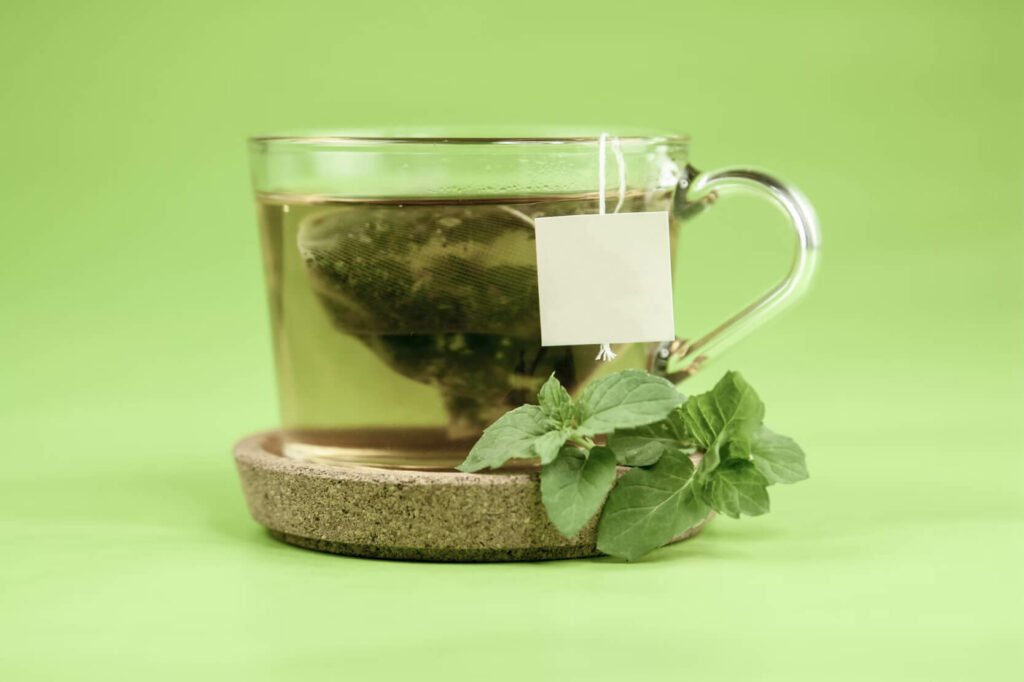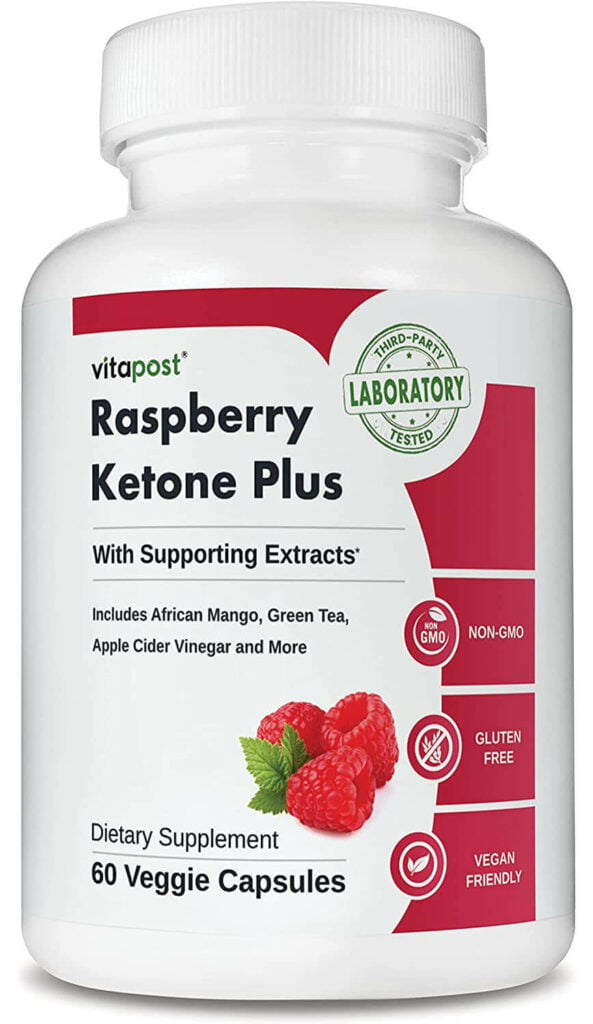Everything You Need to Know: A Big FAQ About Green Tea
Every day, millions of people across the globe reach for a cup of green tea — and why not? This healthy beverage has been used for centuries as part of traditional Chinese medicine and more recently to help boost energy and overall health. But what exactly is in that cup? We’ve compiled this comprehensive FAQ to break down everything you could ever want to know about green tea, from its origins to its famous antioxidants and health benefits. Ready to learn more about this beneficial brew? Let’s dive in!

What is Green Tea?

Green tea is a type of tea made from the leaves of the Camellia sinensis plant. The leaves are quickly steamed or pan-fried to stop the fermentation process before they are dried, resulting in a green colored tea.
Green tea is known for its high levels of antioxidants, particularly a group of antioxidants called catechins. These antioxidants can help to protect the body from damage caused by free radicals, which can play a role in the development of certain diseases
Green tea is also a good source of caffeine, which can provide a boost of energy, and L-theanine, an amino acid that can help promote a feeling of calm and focus. It also contains small amounts of minerals like potassium, magnesium, and fluoride.
Green tea has been traditionally consumed in Asia for centuries, and has been used for medicinal purposes, and it’s now widely consumed around the world.
There are many different types of green tea, which can vary in flavor, color, and strength depending on the variety of tea and the way it is processed. Some popular types of green tea include sencha, matcha, and dragonwell.
Green tea Does it Have Caffeine?
Yes, green tea contains caffeine. The amount of caffeine in green tea can vary depending on the type of green tea and the brewing method, but on average it contains about 25-29 mg of caffeine per 8 oz serving. This is less than the amount of caffeine found in a typical 8 oz cup of coffee, which contains about 95 mg of caffeine.
Does Green tea Have Tannins?
Yes, green tea does contain tannins. Tannins are a group of naturally occurring compounds that are found in many types of plants, including tea leaves. Tannins are known for their astringent taste and can also act as a diuretic which increase urine production.
In green tea, tannins are responsible for its characteristic bitter taste, which can be reduced by steeping the tea leaves for a shorter period of time. The amount of tannins in green tea can vary depending on factors such as the variety of tea, the growing conditions, and the way it is processed.
Tannins have also been reported to have potential health benefits such as antioxidant, anti-inflammatory, and antiviral properties. However, it’s important to note that excessive consumption of tannins can also lead to some side effects such as stomach upset and nausea.
Does Green Tea Burn Fat?

Green tea has been associated with fat burning in some studies. The active ingredient in green tea that is believed to help with fat burning is called catechins, which are a type of antioxidant. Catechins are thought to increase energy expenditure, boost metabolism, and help the body burn fat.
A study showed that green tea catechins, combined with caffeine, can increase energy expenditure by 4% and fat oxidation by 10-16%.
However, it’s important to note that the fat burning effects of green tea may be modest and may not apply to everyone. Additionally, drinking green tea alone is unlikely to cause significant fat burning, and should be consumed as part of a healthy diet and regular exercise regimen.
It’s important to remember that weight loss and fat burning, are not easy and require a combination of a healthy diet, regular physical activity, and a calorie deficit. Green tea can be a great addition to a healthy lifestyle, but it should not be considered a magic solution for weight loss or fat burning.
Does Green tea Help you Lose Weight?

Yes, drinking green tea can help you lose weight. Studies have found that green tea has thermogenic properties and can increase metabolism, which leads to burning more calories and fat. It also contains catechins and polyphenols that can reduce the absorption of fat and boost your body’s ability to break down fat. Additionally, green tea has been found to have an antioxidant effect, which can help reduce inflammation and oxidative stress in the body, both of which can contribute to weight loss.
To maximize its benefits for weight loss, try to drink green tea every day. Make sure you read the labels of any green tea product carefully as some green tea products contain added sugars. Drinking unsweetened green tea means no added calories, which can make a big difference for your waistline in the long run.
Does Green tea Make you Poop?

Green tea, like other teas and caffeinated beverages, can act as a mild diuretic and may stimulate bowel movements, which could lead to an increase in bowel movements or “make you poop”. However, this effect is not specific to green tea and can also occur with other types of tea or caffeine-containing drinks. Additionally, the effect may vary from person to person and may depend on individual tolerance to caffeine.
It is also possible that drinking a large amount of green tea or any other fluid, could cause diarrhea or loose stools if your body is not used to it. If you notice any negative changes in your bowel movements after consuming green tea, it is best to consult with a healthcare professional
Does Green tea Make you Pee?

Green tea contains caffeine, a stimulant that can act as a diuretic, which means that it can increase the frequency of urination. Drinking green tea can cause you to feel the need to urinate more frequently, but it’s not necessarily a bad thing, as it can help to flush out toxins from the body. However, drinking excessive amounts of green tea, or any other caffeinated beverages can lead to dehydration, so it’s important to stay hydrated by drinking water or other non-caffeinated beverages as well.
Additionally, green tea also contains tannins which can also act as a diuretic and increase urine production.
It’s important to note that if you are experiencing frequent urination and it’s causing discomfort or disrupting your daily life, it’s best to consult with a healthcare professional to rule out any underlying health condition that may be causing the symptoms.
Does Green tea Help With Bloating?
Green tea has been suggested to help with bloating, as it may have a mild diuretic effect that can help reduce water retention and promote the elimination of excess fluid in the body.
Additionally, green tea contains antioxidants such as catechins which have anti-inflammatory properties, which may help reduce bloating caused by inflammation in the gut.
However, it’s important to note that green tea alone may not be enough to alleviate bloating and it’s best to consult with a healthcare professional for personalized advice. There could be other underlying causes for bloating such as food sensitivities or gut issues, so a proper diagnosis and treatment plan is important.
Overall, drinking green tea as part of a balanced diet and healthy lifestyle can potentially help with bloating.
Does Green tea Lower Blood Pressure?
Some studies have suggested that drinking green tea may help lower blood pressure. The active ingredients in green tea, particularly the catechins, are thought to have a blood pressure-lowering effect by relaxing the blood vessels and improving blood flow.
Additionally, green tea contains L-theanine, an amino acid that may help reduce stress and tension in the body, which can contribute to high blood pressure.
Additionally, if you are taking any medication for hypertension, you should check with your doctor before adding green tea to your diet as it may interact with the medication and cause a drop in blood pressure that could be harmful.
Does Green tea Break a Fast
Green tea contains a small amount of calories and caffeine, which can potentially break a fast depending on the type of fast and the person’s goals.
For a traditional fast, where no food or calorie-containing drinks are consumed, drinking green tea would break the fast.
However, for intermittent fasting or other types of fasting protocols, such as time-restricted feeding or the warrior diet, the rules can vary and some may allow for low-calorie, non-nutritive drinks like green tea, black coffee, or water with lemon during the fasting window.
The idea behind most fasting protocols is to reduce overall calorie intake and give your body a break from digestion, so if you are drinking green tea during a fast, it’s best to consume it without added sugar or milk, and to choose a green tea variety that is low in caffeine.
Does Green tea Dehydrate You?
Green tea contains caffeine, which is a mild diuretic, meaning it can increase urine production and make you urinate more frequently. This can lead to an increase in fluid loss and potentially cause dehydration, especially if you are consuming large amounts of green tea or other caffeinated beverages throughout the day.
However, the diuretic effect of green tea is relatively mild and drinking moderate amounts of green tea can still be part of a healthy hydration plan. It’s important to balance the fluid loss from green tea by drinking enough water and other non-caffeinated fluids.
Additionally, it’s important to note that green tea can also be beneficial for hydration, as it contains antioxidants and other beneficial compounds, and drinking green tea as part of a balanced diet can help to promote overall health.
It’s important to listen to your body, if you are experiencing symptoms of dehydration such as dry mouth, fatigue, or dark yellow urine, it’s best to increase your fluid intake and decrease your consumption of caffeinated beverages.
Does Green tea Have Calories?
Green tea does not have many calories, a cup of green tea (8 oz) contains about 2 calories[1]. This makes it a good option for those looking to limit their calorie intake. However, it’s important to note that if you add sugar, honey or milk to your tea, it will increase the calorie content, so be aware of the amount and type of sweeteners you are adding.
Also, some green tea varieties like matcha, which is a powder made from ground green tea leaves, tends to have more calories, as it is consumed in a different way, by mixing the powder with water to make a paste, and the whole leaf is consumed.
Overall, green tea can be a great low-calorie option for hydration and to get some antioxidants, but it’s important to be mindful of the added ingredients and to consume it as part of a balanced diet.
Does Green tea Cause Kidney Stones?
There is some evidence that drinking large amounts of green tea may increase the risk of developing kidney stones, particularly in people who are predisposed to developing them.
This is because green tea contains oxalates, which are naturally occurring compounds that can form crystals in the urine and contribute to the formation of kidney stones.
However, it’s important to note that most people can safely consume moderate amounts of green tea without increasing their risk of developing kidney stones. The risk of developing kidney stones from drinking green tea is low in healthy individuals.
Additionally, drinking green tea as part of a balanced diet and staying hydrated may actually decrease the risk of kidney stone formation.
If you have a history of kidney stones or have been advised by a healthcare professional to limit your intake of oxalates, it’s best to consume green tea in moderation or avoid it altogether. It’s also important to consult with a healthcare professional for personalized advice.
Does Green tea Lower Cholesterol?
Some studies have suggested that drinking green tea may help lower cholesterol levels.
The active ingredients in green tea, particularly the catechins, are thought to have a cholesterol-lowering effect by inhibiting the absorption of cholesterol from the gut and by increasing the breakdown of cholesterol in the liver.
However, it’s important to note that the effects of green tea on cholesterol levels may vary from person to person and more research is needed to confirm its effectiveness.
Does Green tea Give you Energy?
Green tea contains caffeine, which can provide a boost of energy. However, the amount of caffeine in green tea is typically less than that found in coffee, so the energy boost may be less pronounced. Additionally, green tea also contains L-theanine, an amino acid that can help promote a feeling of calm and focus.
Does Green tea Help With Acne?
Green tea has anti-inflammatory properties which may help to reduce the inflammation associated with acne. The polyphenols and antioxidants found in green tea can also help to reduce the production of sebum, which is an oily substance that can contribute to the development of acne.
It has been shown in some studies that green tea applied topically can help reduce the number of acne lesions and the severity of acne, but more research is needed to confirm these findings. Drinking green tea alone may not have significant effect on acne, but it could be beneficial when combined with other appropriate skin care routines.
Does Green tea Help you Sleep?
Green tea contains small amounts of caffeine, which can make it more difficult to fall asleep, especially if consumed close to bedtime. However, green tea also contains an amino acid called L-theanine, which can promote feelings of relaxation and calmness, and may counteract the effects of caffeine.
Additionally, drinking green tea regularly may help regulate the body’s circadian rhythm, which can improve the quality of sleep. It may also help to reduce stress and anxiety, which can contribute to insomnia.
It’s important to note that the timing of when you drink green tea can be important. Consuming green tea in the morning or early afternoon may be more beneficial for sleep, as it will allow enough time for the caffeine to metabolize before bedtime.
Why Does Green tea Make me Nauseous?
One reason could be that you are sensitive to caffeine. Green tea contains caffeine, and although it has less caffeine than coffee, it can still cause side effects such as nausea, jitteriness, and anxiety in some individuals who are sensitive to it.
Another reason could be that you are drinking green tea on an empty stomach. Consuming any beverage, especially one that contains caffeine, on an empty stomach can cause stomach upset and nausea.
Another reason could be that you’re drinking too much green tea. Consuming excessive amounts of green tea can cause side effects such as nausea, stomach upset and headaches.
Lastly, some people may be allergic to some components of green tea, which can lead to nausea and other symptoms.
If you’re experiencing nausea after drinking green tea, it’s best to stop drinking it and see if your symptoms improve. If the symptoms persist, it’s important to see a doctor to rule out any underlying health conditions that may be causing the nausea.
Does Green tea Lower Blood Sugar?
There is some evidence to suggest that green tea may have a beneficial effect on blood sugar levels. Studies have shown that compounds in green tea, such as polysaccharides, can help to regulate the absorption of glucose in the body, which can lead to lower blood sugar levels.
Green tea may also improve insulin sensitivity, which can help to regulate blood sugar levels. Studies have also shown that the polyphenols found in green tea, specifically EGCG (Epigallocatechin gallate), can increase insulin sensitivity and glucose uptake, which can lead to lower blood sugar levels.
However, it’s important to note that more research is needed to understand the full extent of green tea’s effects on blood sugar levels, and also that green tea should not be used as a replacement for any medication or other treatments, it should be used as a complement. It’s always recommended to consult with a doctor or a dietitian before making any changes to your diet or treatment plan
Does Green tea Stain Teeth?
Green tea, like other teas, can stain teeth due to the presence of tannins. Tannins are a type of polyphenol that can adhere to the surface of teeth and cause discoloration. The staining can also be intensified by the presence of other substances such as sugar or milk, which can also adhere to the surface of teeth.
To prevent staining, it is recommended to drink green tea with a straw or to rinse your mouth with water after drinking. Brushing your teeth before drinking tea can also help to reduce staining.
In addition, regular dental hygiene practices such as brushing and flossing, and visiting the dentist for regular cleanings can help to remove surface stains and maintain healthy teeth
It’s important to note that, while green tea can stain your teeth, it has many benefits, so it’s not necessary to avoid it completely, but to be mindful of your consumption and oral hygiene.
Does Green tea Clean Your System
Green tea is a rich source of antioxidants, particularly catechins, which can help protect the body from damage caused by free radicals. The antioxidants in green tea may help to support the body’s natural detoxification processes and promote overall health.
Additionally, drinking green tea can also increase the frequency of urination, which can help to flush out toxins from the body. The diuretic effects of caffeine and tannins present in green tea may aid in this process.
It’s important to note that drinking green tea alone is not a substitute for a healthy diet, regular exercise and a balanced lifestyle. A healthy and balanced diet, regular exercise, and adequate hydration are all essential to maintaining a healthy body and supporting its natural detoxification processes.
It’s always recommended to consult with a healthcare professional before making any changes to your diet or treatment plan.
Does Green tea Increase Blood Pressure?

Caffeine, which is present in green tea, can cause a temporary increase in blood pressure. Caffeine can cause the blood vessels to constrict, which increases blood pressure. This effect is generally short-lived and blood pressure usually returns to normal within a few hours.
However, it’s important to note that regular consumption of green tea does not appear to cause a sustained increase in blood pressure in most people. Some studies suggest that green tea may even have a blood pressure-lowering effect. The polyphenols found in green tea, specifically EGCG (Epigallocatechin gallate), can reduce the activity of enzymes that contribute to hypertension and improve the flexibility of blood vessels, which can lead to lower blood pressure.
Does Green tea Make you Last Longer in Bed?
Unfortunately, there is no scientific evidence to suggest that drinking green tea can make you last longer in bed. However, there are some potential benefits of consuming green tea that could be sexually beneficial. For example, it is believed that green tea can increase your libido or sex drive. Additionally, it contains L-theanine, which is an amino acid that is thought to help relax your muscles and reduce stress. Lastly, its mild caffeine content may provide you with some energy, which could give you an extra boost in the bedroom.
At the end of the day, drinking green tea won’t be a magic pill that will make you last longer in bed. However, if you find yourself getting stressed out or lacking in energy before having sex, green tea may be a beneficial addition to your diet. As with most things in life, it’s important to experiment and find out what works best for you.
Does Green tea Keep you Awake?
Yes, green tea can keep you awake. Green tea contains caffeine, which is a natural stimulant that can help keep you alert and focused. Caffeine works by blocking adenosine receptors in the brain, a chemical that helps regulate sleep. The amount of caffeine in green tea varies, but one cup of matcha green tea contains about 35 to 70 mg of caffeine, compared to 100 mg found in a cup of brewed coffee.
Drinking green tea also increases levels of dopamine and norepinephrine, which can help boost your mood and energy levels. Additionally, research suggests that l-theanine, an amino acid found in green tea, may help promote alertness and even enhance cognitive reasoning and memory. All of these benefits can add up to improved focus and alertness that can help keep you awake and productive.
Does Green tea Count as Water Intake
Yes, green tea does count as water intake. It is not quite the same as water due to its caffeine content, but it does have other health benefits such as being rich in antioxidants. In addition, it is largely made up of water and therefore will help to hydrate the body. The caffeine in green tea can act as a mild diuretic so it is important to take in more water than green tea to stay hydrated. However, drinking green tea can still be an important part of keeping you healthy.
It is best to drink green tea as part of what is called total water intake which includes other drinks like plain water, juice, and decaffeinated tea or coffee as well as food that contains high amounts of water such as fruits and vegetables. All of these combined can help make sure that your body is receiving the adequate hydration it needs. Therefore, it is important to remember that while green tea can help you meet your water intake goals, it is still important that you are also consuming enough plain water each day.
Does Green tea Cause Acid Reflux?
Acid reflux, also known as gastroesophageal reflux disease (GERD), is a condition in which stomach acid flows back into the esophagus, causing discomfort and irritation. Green tea is generally considered safe to consume for most people, but in some cases it can exacerbate acid reflux symptoms.
The caffeine present in green tea can relax the lower esophageal sphincter, the muscle that separates the esophagus from the stomach, which can allow stomach acid to flow back into the esophagus, leading to acid reflux.
Additionally, green tea is acidic in nature, and consuming acidic food and drinks can also cause acid reflux.
If you have acid reflux, it’s recommended to avoid or limit the consumption of green tea, or any other caffeinated and acidic drinks, as it may worsen the symptoms
Does Green tea Have Electrolytes
Green tea does not contain significant amounts of electrolytes. Electrolytes are minerals, such as sodium, potassium, calcium, and magnesium, that help to balance fluids in the body and maintain proper muscle and nerve function. These minerals are essential for the body to function properly, but are not present in large amounts in green tea.
Green tea does contain some small amount of potassium and magnesium, but not in significant enough amounts to be considered a good source of electrolytes.
It’s important to note that while green tea can be a healthy addition to a balanced diet, it is not a substitute for other sources of electrolytes, such as foods rich in potassium, magnesium and sodium, or electrolyte supplements.
Proper hydration is important for maintaining electrolyte balance, and it’s important to drink water and other fluids throughout the day to stay hydrated. Drinking fluids that contain electrolytes, such as sports drinks, can also help to replenish electrolytes lost through sweating and other activities.
Does Green tea Make Your Breasts Smaller
Unfortunately, green tea has not been shown to have any effect on breast size. There have been some small studies that have suggested that the antioxidants and plant compounds found in green tea extract may have anti-estrogenic effects, meaning it might affect the balance of hormones in the body and lead to breast size reduction. However, these studies are inconclusive and more research needs to be done to definitively say whether or not green tea can reduce breast size.
In spite of this, green tea is still beneficial to your health overall. It is an excellent source of antioxidants and can help improve brain function and speed up metabolism. While there is no concrete evidence that green tea can make your breasts smaller, drinking it can still be beneficial and may even help support overall health and wellbeing.
If you’re looking for a natural way to support your weight loss goals and kickstart healthy fat burning, look no further than Raspberry Ketone Plus from VitaBalance. Our all-natural supplement is the perfect way to get your body back on track and start shedding those extra pounds faster.
Raspberry Ketone Plus contains the powerful natural compound Raspberry Ketone, which has been studied for its potential to regulate metabolism and promote the breakdown of stored fats. It’s also packed with other essential natural ingredients: African Mango Extract, Acai Berry, Grape Seed Extract, and Caffeine Anhydrous – all of which work together to provide you with an effective weight loss system in a single easy-to-swallow capsule.
Forget about strict diets and long workout sessions! With Raspberry Ketone Plus, you can take the first step towards a healthier, happier lifestyle without sacrificing enjoyment. Get ready to “reset” your metabolism and jumpstart fat burning – because when you’re backed by VitaBalance, nothing can hold you back!
Conclusion
In conclusion, green tea is a popular and healthy beverage option with many potential benefits. It can help improve heart health, reduce body fat, and aid in reducing cholesterol levels. However, consuming too much of it can result in undesirable side effects, such as insomnia, increased risk of bone fractures, and reduced iron absorption. To maximize the health benefits of green tea, it is important to talk to your doctor. They can advise you on the best way for you to use green tea for your individual needs.
Though green tea has many potential benefits, it’s important to remember that it is not a cure-all solution. When combined with a healthy diet and lifestyle, green tea is an excellent tool for helping improve overall health. Keep in mind the potential side effects that can occur when overdosing on green tea, and speak to your doctor whenever considering adding any supplement to your diet. Finally, if you decide to make green tea part of your daily routine, it’s best to avoid sugary additives like syrups or honey, which can add empty calories and negate some of green tea’s positive effects

